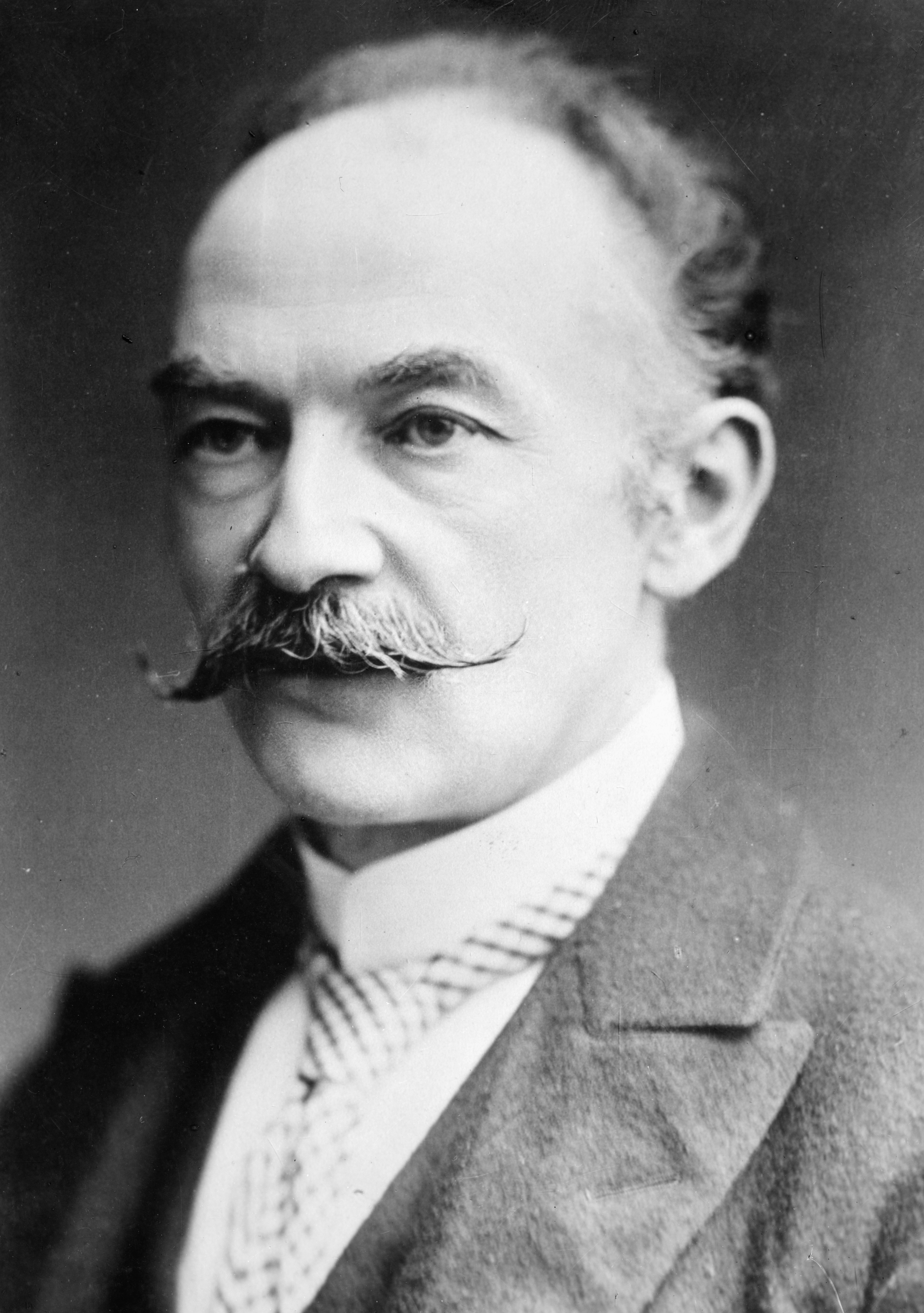Hardy, Thomas (1840-1928), was an English novelist and poet. In most of Hardy’s books, his characters fight a losing battle against the impersonal force of fate. Hardy summed up his vision of the unfairness of life in the novel Tess of the d’Urbervilles. He wrote that, with the heroine’s death, “‘Justice’ was done, and the President of the Immortals, … had ended his sport with Tess.”

Hardy’s characters can be viewed as people with psychological weaknesses. But Hardy saw human downfall not primarily as personal weakness, but rather as the result of an unwilling conflict with a hostile, meaningless universe.
Most of Hardy’s stories take place in the fictional county of Wessex, a place of gloomy landscapes well suited to stories of tragedy. Hardy modeled Wessex on the county of Dorset, his birthplace.
Hardy’s first successful novel, Far from the Madding Crowd (1874), contrasts selfish love with selfless love. The Return of the Native (1878) is a somber story of the tragic results of a man’s illicit love for a woman. The Mayor of Casterbridge (1886) traces the spiritual and physical deterioration of a respected man.
Hardy’s last great novels, Tess of the d’Urbervilles (1891) and Jude the Obscure (1895), treat the theme of sexual attraction with a frankness that shocked the people of his time. The public outcry against Jude the Obscure was so great that Hardy stopped writing novels, an occupation he had never really respected, and turned to poetry.
Hardy wrote lyric poetry of high quality. His best verse captures a profound sense of human loss and sorrow. Like his novels, many of Hardy’s poems convey the bitter ironies inflicted upon humans by “Immanent Will,” the blind force that he felt drives the world.
Hardy was born on June 2, 1840, in Upper (or Higher) Bockhampton in Dorset. He studied architecture and worked as an architect. In the early 1870’s, he abandoned architecture for a full-time career as a writer. Hardy died on Jan. 11, 1928.
See also “Voice, The.”
